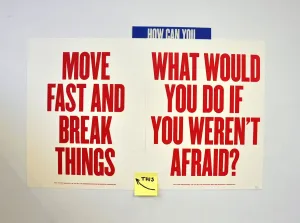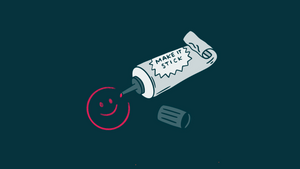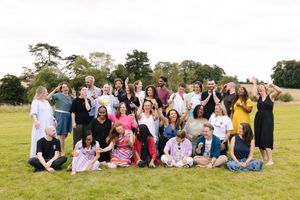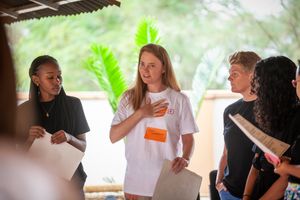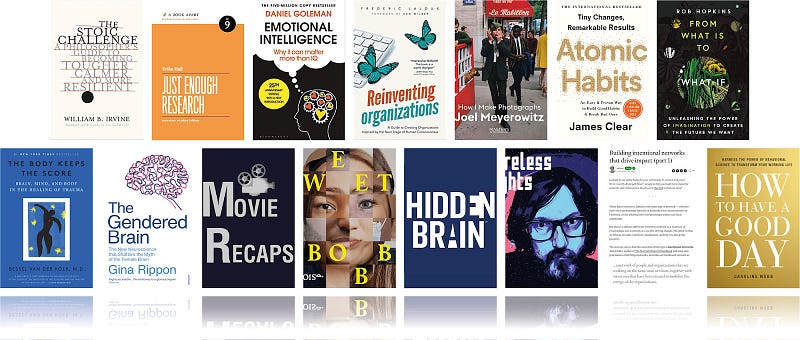
Despite everyone’s hopes and best efforts 2021 has been yet another year filled with uncertainty and doubt. We’re all ready for brighter news given Omicron, the intensifying climate crisis, setbacks in gender equality and supply disruptions and shortages making recovery even more uncertain. At Brink we have been very fortunate to get to work directly on these important challenges and more, and have welcomed more Brinksters to join us along the way. We’re now a team of 25+ people across 8 countries, working with over 160 innovators tackling some of the hardest problems in the world.
As a team we have reflected on our individual changes during this year. What has this year taught us, and how has it shaped us. Many of us set out into 2021 with an appetite for more resilience and adaptability to help us thrive in another difficult year. It turns out many of us feel we are braver, bolder, more confident humans than we were a year ago but this is, in part, thanks to our collective ability to be a little more fragile around the edges too.
The things that have shaped our work reflect this: you’ll see books and podcasts which have taught us to build our capacity for empathy when coaching others and listen to our bodies to understand our own brains’ limbic responses to trauma. Others have taught us to dream, imagine and be okay with all the not knowing. Some have simply taught us to cope and live well intentionally.
If you’ve visited one of our annual lists before, you might spot that some have been featured on previous round ups. If we’ve included them again it’s because they have a new relevance and meaning in the new context we find ourselves in, with new reflections emerging years on.
As a team we end the year knowing that we have learned to be stronger, more nimble and graceful through the storms of a pandemic, climate crisis and economic shifts. These are the books, podcasts, tweets and blogs that have kept our collective curiosity, motivation and imaginations sharp and helped us weather the storm. I feel privileged to work with such a courageous and kind bunch of people around the world and as you read through, I hope you’ll see why.
What shaped your thinking this year? And what do you have lined up to read in the new year in your ? I’d love to hear from you, and if you’re looking for any particular recommendations let me know, the Brinksters and I love a good recommendation.
The list is organised into the 7 strong themes that emerged this year:
- Unlocking imagination
- Zen and stoicism
- Understanding your brain to understand the world
- Working intentionally
- How we tell stories
- Fresh perspectives
- Better communities
Unlocking imagination

📖From What Is to What If: Unleashing the Power of Imagination to Create the Future We Want
The book argues that if we create the conditions for people to tap into their imagination, then collectively, we can come up to some of the biggest challenges collectively and live more cohesively as a community. The power of imagination is something I’ve been tapping into in my work with social enterprises, and city and national governments. The exercise of asking people to imagine what it could be has helped to break present-ism with teams, and expand thinking from one of ‘constraints’ to one of possibility.
From Constanza #whatif
📺 The Wonders of Web3 And Much More, on the Tim Ferriss Show
I’ve been obsessed with the idea of crypto-philanthropy this year. Web3.0 brings with it the hallmarks of my preferred future: less reliance on advertising to broker relationships with makers and buyers, distribution, democracy. I’m jazzed. When I try to talk about this to people, I push up against a lack of knowledge on all sides (my own included) like trying to dream of internet ideas in 1995, I just feel the lack of mental models, frameworks and tools to come up with things that seem truly groundbreaking. This episode of Tim Ferris was a game-changer for me in that regard. The conversation is long, but gripping and makes sense of this emergent world in tangible and simple ways. Today I believe strongly that Web3.0 will make participatory grantmaking possible and ease the cost of fund management through automation. If you want to nerd out with me about this. Let’s hang.
From Lea #metaverse
📖 The Body Keeps the Score, by Bessel van der Kolk
Our mission of enabling others to tackle the world’s biggest challenges through Behavioural Innovation fundamentally hinges on enabling people to be able to withstand things most of us have been conditioned to avoid. Things like: having, and then sharing dreams for how the world could be different; holding others’ inertia or fear of change; working through ambiguous situations and facing entrenched paradigms that work “well enough, for some”. I’ve found Bessel van der Kolk’s research into the origins and manifestation of trauma incredibly useful for recognising when trauma-like responses might be activated in our work, and it’s helped me be a more empathetic innovation coach. Van der Kolk’s solutions focus on re-centering his patients in experiencing their bodily reality in the present to transform trauma responses, and this is something we have started integrating more consciously into our programme work at Brink.
From Johannes #deuce
Zen and stoicism
📖 Why Conversations Go Wrong: Hidden Brain
It helped me realise some of the communication quirks that I have, and how that affects my relation with people I work with. For example, I need more time to start speaking than others. This helped me reframe people who I perceived to be “jumping in” as people “speaking as feels natural to them”. It’s a small but really significant insight for me. It means that I can hold back judgment more easily in meetings, and that I’ve been able to make requests of people to give me half a second more time to come in with a comment in a conversation, or to let me finish a thought.
From James #slowdown

📺 The Stoic Path, by William Irvine
Learning how to practice stoicism, in the philosophical sense, is very handy when it comes to working in innovation. Things don’t go according to plan, pretty much ever. Learning the tools of stoicism continuously support me to find the brightside, reframe the difficulties and generally maintain my zen. I’ve been enjoying the lectures William Irvine prepared for Sam Harris, which are available on his app. They’re about 15 minutes long each and I grant myself one while getting ready each morning, allowing myself to think about what I’ve heard over the course of the day.
From Lea #chillax
Understanding your brain
📖 The Gendered Brain, by Gina Rippon
There’s so much we’re still learning about the brain and so many accepted wisdoms that are essentially nonsense: left brain, right brain is not a thing. And the idea that women’s brains are different than men’s…it’s just not true. Gina’s book is a brilliant review of brain science and all the ways we’ve been off course from the start by treating research of men and women differently. She shows how we can get back on track, and the potential of what might be unleashed if we do. “The brain is waxing and waning much more than we ever realised. So if you haven’t had particular experiences — if as a girl you weren’t given Lego, you don’t have the same spatial training that other people in the world have.” I’m a strong believer in nurture alongside nature, and running a Behavioural Innovation practice it’s very potent to know how we can improve the plasticity in our brains, our ability to learn and essentially, change our minds.
From Abi #womanup
📖 Emotional Intelligence, by Daniel Goleman
It’s a deep dive into the limbic system and how emotions drive our decisions. A pretty important in every aspect of life.
From Ollie #knowyourself
Working intentionally
📖 Caroline Webb’s ‘How to Have a Good Day’
If I could travel back in time and give one book to my younger professional self, it would be this one. Look: all my hard won knowledge about the power of setting clear intentions, being aware of my own mood, and reframing challenges, all in a nifty and easy to read book! This book helped me make more pandemic work days, good days. Its practical exercises helped me navigate the ups and downs of working life in 2021. I imagine what my life would be like if I’d worked this intentionally, earlier. The publishing blurb says that Caroline Webb shows us how to ‘set better priorities…be our smartest selves, strengthen our personal impact, be resilient to setbacks, and boost our energy and enjoyment’. (I couldn’t say it better, so I didn’t.) It’s peppered with exciting tidbits from behavioural science experiments, and the world of organisational psychology. All the research would increase the likelihood that the young me- a self-help sceptic- would actually read it.
From Jess #itsinyourhands
Good research is so undervalued and not done nearly enough. On the other side of the spectrum, when it is done, it is often way too bloated and slow to be actionable. Erika Hall find the sweet spot and helps everyone, wherever you sit on the spectrum, find that nice sweet spot.
From Fraser #digin
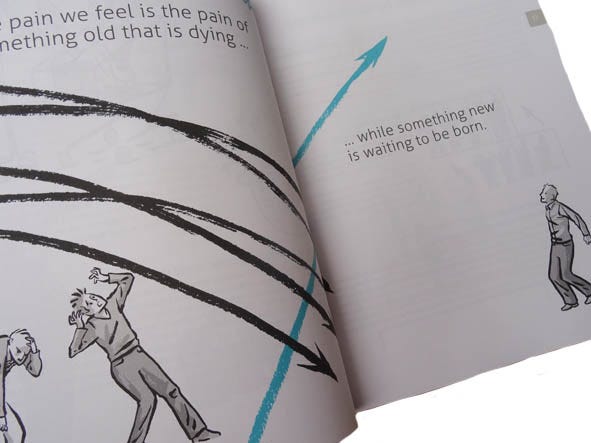
📚 Reinventing Organisations by Frederic Laloux
It’s hardly a new book but it’s been super relevant across so much of my work this year — on programmes with multiple different partners working in consortium, as well as within Brink, we’re asking ourselves how we can create team structures that move away from traditional hierarchy or command control style organisational design, but instead ones that enable innovation and self management.
From Alice #growresponsibly
How we tell stories
🔊 The Promise, by Damon Galgut
Fiction has an underrated impact on our work. This is the Booker Prize winning novel from South African author Damon Galgut. It’s magic. I highly recommend the audiobook, which Peter Noble does beautifully. It impacted my work this year by underlining the importance of craft and storytelling in life. Humans are meaning and story making machines, doing stories well is a superpower that I hope we continue to cultivate at Brink. The book is an intergenerational story of a white South African family and South Africa itself. It’s told over several decades, meeting the family at a series of funerals as each of them pass away. As a South African, living in London, doing work funded by ‘development’ money it’s a great reminder of my past and quite the reckoning for those of us interested in decolonising aid.
From Lea #superpowers
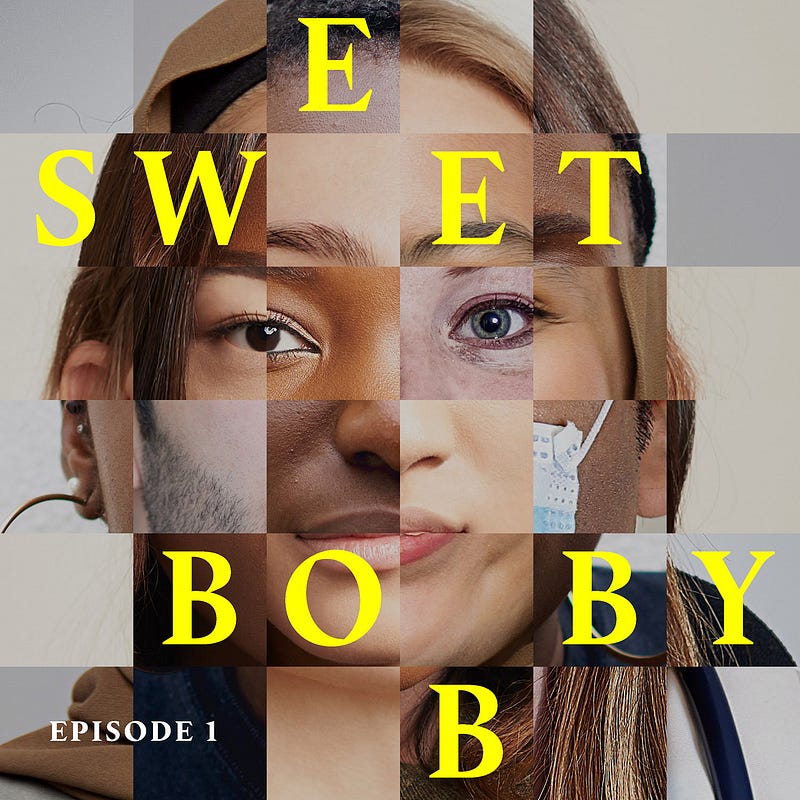
🎧 Sweet Bobby, from Tortoise Media
I’ve always loved multi-media art, and this is a brilliant example of multi-media audio, pulling on every scrap available, from reliving a car drive to highlighting the ethereal pinging of incoming text messages underneath the words of someone leaving an old voice note on WhatsApp. This is a live story with new jigsaw pieces being found and woven in, even as episodes are being published — it’s something which has helped me understand the art of telling stories before you have all. the pieces: slowing down and finding as much of the story as is available. It’s hard in a sector where we preach fast-paced innovation, quick-fire experimentation, impact reports and sprinting to the finish line, but at Brink we regularly step off the dancefloor and onto the balcony to see the whole picture. I want our storytelling to reflect that process too.
From Lil #lookup
I fell down a YouTube hole of watching movie recaps and movie shorts. It’s impacted my work by making me think: how do I condense interesting stories and concepts in short-form for time-poor, content overloaded people? In 2021, I feel like streaming and the endless supply of stuff to consume has meant we are dealing with an attention span deficit so we need to be more mindful in how we create moments and focus. So for example, from big wordy presentations, we’ve gone down to 10 slides with a clearer narrative. We also try and carve out that space and time for people to hear themselves think.. something we hear a lot when people want to take a step back, reflect and compose the story in their heads of what leads to wellbeing in the workplace.
From Gita #snapshot
Fresh perspectives
Figuring is a series of interconnected biographies of 23 people who invented things or had big ideas (Darwin, Kepler, Maria Mitchell, etc.) How they inspired and influenced each other. It made me remember how much people shape and influence each other: across time and space. And how that series of links and thoughts inter-connects to give us inventions, new ideas, etc. As I spend my time at Brink working with people to grow new ideas, Popova made me remember how these ideas come about through people, and how important the people are in how the world works, fixes things, and makes everyone’s life better.
From Asad #listen
🎧 Jarvis Cockers ‘Wireless Nights’ podcast
As Jarvis talks about the emotions that bubble to the surface over a long plane flight, he also invites a priest to talk to us about how the architecture of a church moves us from east to west and birth to death. All of this juxtaposed with the role of a night time farmer birthing lambs. It makes me wonder — how might we collect and curate unique perspectives that are seemingly disconnected, into a new angle of the world, or, a new collective path into solving a problem?
From Miranda #storytelling

📖 How I Make Photographs, by Joel Meyerowitz
I love street photography. As a psychologist it’s just another study of humans from a slightly different angle. Studying and practicing street photography has shaped my practice at Brink by watching for those millisecond moments where energy shifts, ideas land, feelings turn. Photography has helped me get hyper in tune with the energy, the feeling of fizz that makes you know something magical is about to happen and Joel Meyerowitz is a king of that anticipation, and noticing. He also talks about the presence you have with a camera and how that shifts the energy and I feel that way a lot in group work about who holds the space and how they do that sensitively. I find the tips in his book as useful in facilitation as they are in photography. Either way, it’s a beautiful insight into our behaviour.
From Abi #capture
Better communities

📝 The Fundamentals of Building Effective Communities, by Kumu
Building Communities is an evolution and a process. This blog reminds me of that and how it’s important to understand what stage we’re at when building any community. By being mindful of the growth and evolution, it’s easier to work with a community to meet peoples’ needs more effectively and not get burnt out on targeting energy at the wrong places.
From Abi #BetterTogether
📖 Atomic Habits, by James Clear
How to “habit hack” essentially — and how making things easy, accessible and sticky is essential for running a community.
From Bryony #hackyourcommunity
